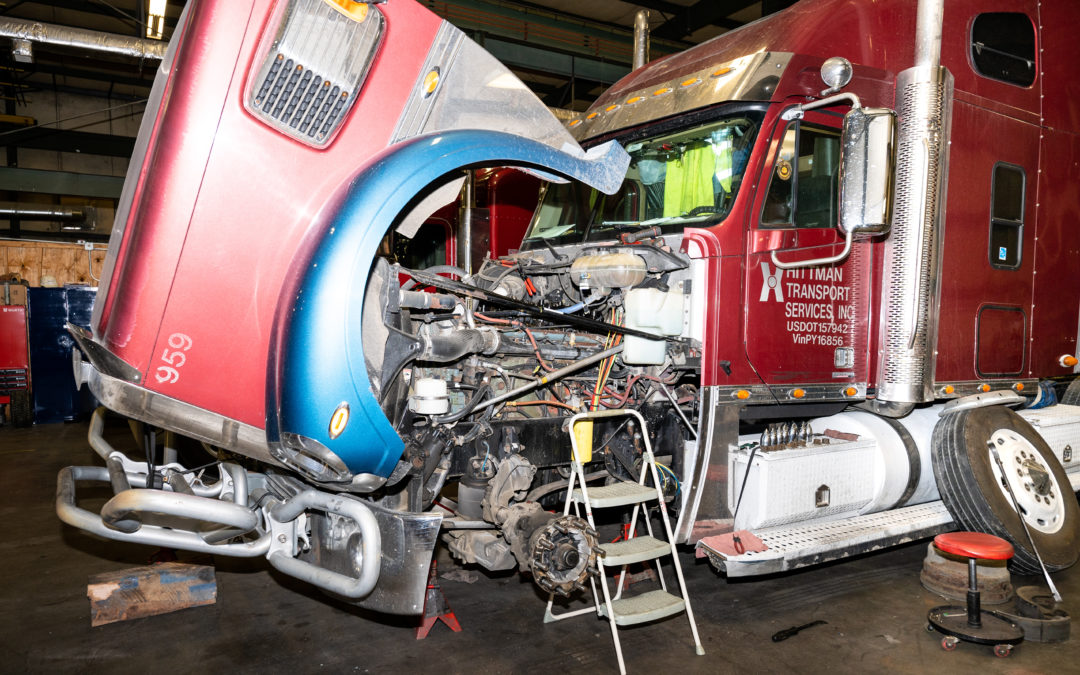Even though diesel engines are more fuel efficient and provide more energy than similar size gasoline engines, fleet managers and owner-operators alike are continually looking for ways to improve profit by increasing your diesel engines fuel mileage. Even most consumers who drive a diesel engine vehicle want to find out how they can get the most mileage per gallon of diesel. Here are a few tips on how you can increase your diesel engines fuel mileage and save you or your fleet money.
Essentially, there are two categories of ways to increase your diesel engine’s fuel mileage. These two categories fall into the behavioral camp and the modification camp; one consisting of how you use your engine and best practices and the second involves having a mechanic install aftermarket equipment in your engine to help it improve fuel mileage. In this article, we’ll cover both.
Behavioral Ways to Increase Diesel Engine Fuel Mileage
When attempting to increase your diesel engine’s fuel mileage, the best place to start is looking at your driving habits or those of your drivers. By conditioning yourself to follow certain driving behaviors, you’ll be rewarded with a boost in fuel efficiency.
Avoid Idling
When possible, drivers should avoid excessive idle time, especially when you are warming up your cab or dropping in on a rest stop.
Use Synthetic Oil
In many diesel engines, switching from standard to synthetic oil can improve fuel economy as much as 11%. High-quality fluids, in a large number of cases, will improve overall fuel mileage.
Accelerate Evenly
While some situations, such as when merging onto the interstate, require drivers to accelerate quickly, putting the pedal to the medal and accelerating fast can hurt your diesel engine’s fuel mileage. Instead utilize a smooth, steady fuel acceleration to prevent excessive fuel burning. The lower the RPMs used in your diesel, the better your fuel efficiency.
Use the Cruise
When on flat terrain, using the cruise control allows you to maintain a constant speed without having to step on the gas pedal. This tactic will obviously improve your overall fuel efficiency.
Lower Your Highway Speed
Studies have shown that trucks burn less fuel at a lower speed. Therefore, it’s common to see a 55-mph speed limit for vehicles on the highway. For every mile per hour over 55, your fuel economy decreases by 0.1 miles per gallon.
Know Your Engine
After driving a diesel truck or car for long enough, you’ll figure out the “sweet spot” for the engine, which is when your engine is in its peak torque. This spot is where you will find the best horsepower and fuel economy.
Optimize Your Weight
With semi-trucks, being overloaded past the designated weight can drastically decrease diesel fuel mileage. Always check your weight to make sure you are within limits and don’t carry any unnecessary weight.
Check Your Tires
Driving on under- or over-inflated tires can also decrease your fuel economy. While tire condition and psi should be a regular part of pre-check, changes in air temperature can cause the air pressure in tires to increase when it’s hot or decrease when it’s cold. Try to always run your vehicle at the tire manufacturer’s suggested psi.
Diesel Engine Modifications that Improve Fuel Efficiency
Technology continues to advance in diesel vehicles that promise to offset behaviors that waste fuel. “Buyer beware” is an excellent note here, as many aftermarket products do not improve your fuel mileage.
Aerodynamic Drag Reduction
Reducing drag has become one of the most widely accepted ways to improve fuel efficiency in trucking fleets. Methods used to reduce drag on tractor trailers include installing vortex generators, fairings, side skirts, vented mud flaps, drive fenders, and wheel covers. Utilizing these drag-reducing devices can save thousands of dollars per year via fuel economy.
Diesel Engine Additives
Fuel additives can be hard to evaluate objectively. While they promise to keep your intake valves, injectors, and carburetors clean, the actual fuel efficiency can be so minuscule that it’s hard to notice. Additionally, most newer truck engines don’t need any additives. Before spending your hard-earned money on engine additives, contact a certified diesel mechanic and get their opinion.
Air Intake & Air Filters
Air is crucial for a properly functioning, combustion engine. By purchasing an advanced air intake product for your engine, you’ll avoid losing power due to a lack of adequate air flow. Cold air intakes will improve long-term engine durability, as well as diesel engine performance no matter the season.
Speaking of the air intake, air filters play an enormous role here as well. While buying premium air filters will cost a little extra, they quickly pay for themselves in terms of improved fuel mileage.
Vehicle Monitors
We talked a lot about behaviors that can lower your fuel mileage and how fixing them will improve your diesel’s fuel economy. If you need a solid piece of equipment to help you curb aggressive driving, installing a monitor that keeps real-time track of your miles per gallon can undoubtedly help. By keeping track of your vital systems, you’ll be able to get instant feedback when you idle too much or drive at inconsistent speed.
Conclusion
For fleet managers and owner-operators wanting to save money by improving diesel engine fuel efficiency, there is an awful large amount of wrong information on the internet. Whether you need advice about wasting fuels or aftermarket parts or need them installed, having a certified diesel mechanic on speed dial is excellent to have. Contact Certified Diesel Solutions today to speak with a Certified Diesel Technician who can help you save money at the pump while keeping all your trucks running at optimal condition. Making an appointment is as easy as sending us an online request for service or by phone at (865) 964-6598.

